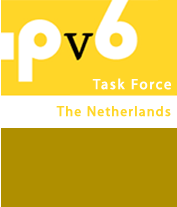On 27 April 2005, the Dutch Ministry of Economic affairs, together with partners, established the Dutch IPv6 Task Force. Now, 13 years later, the decision has been made to dissolve the task force. We have come a long way and should celebrate its success, but the work is far from finished as far as helping people build capacity and deploy IPv6 is concerned.
On 27 April 2005, the Dutch Ministry of Economic Affairs decided to establish the Dutch IPv6 Task Force, together with partners such as Surfnet, SIDN, AMS-IX, ISOC and of course, the RIPE NCC. Chaired by Erik Huizer, the mandate of the task force was to raise awareness about the necessity of IPv6, enable knowledge transfers on the deployment of IPv6 and coordinate between the different public and private sector stakeholders.
At the last meeting of the task force, held on 26 April 2018 in Utrecht, precisely 13 years later, the decision was made to put the task force to rest. Not because the deployment of IPv6 in the Netherlands is finished, but because the current participants felt that most of the mandate had been fulfilled. Almost everybody is aware, in both the government and private sectors, that there are projects underway that will involve the deployment of IPv6. While knowledge transfers and capacity building remain important, there are other avenues to do that beyond the task force.
Of course, it should be noted that there was IPv6 deployment before the task force came into being. Several Dutch ISPs such as XS4ALL and BIT were already underway with IPv6 deployments and, also, the Surfnet network and the Amsterdam Internet Exchange were carrying IPv6 packets at the start of the century.
What the Task Force Achieved
The task force did a great job, particularly with IPv6 awareness in the public sector and the coordination of activities. During its active life, we saw the Dutch government, by means of the Forum Standaardisatie, adopt IPv6 as a mandatory requirement for government ICT projects.
Meanwhile, the private sector also kept working on deployment, with leaders like XS4ALL and Solcon bringing IPv6 to people at home by offering it on residential broadband products. While it took some patience, despite changing plans and target dates, we now also see IPv6 deployment in the country's market leaders KPN and Ziggo. More recently we have also welcomed several players of the Dutch financial sector, with IPv6 deployments in Rabobank and Volksbank.
The Dutch government, meanwhile, also did a fair bit of IPv6 deployment. The main government website and many others are now IPv6 enabled. Even the website of the Dutch royal family (https://www.koninklijkhuis.nl) is dual-stack. He might not realise it, but the King of the Netherlands has IPv6.
With an observed deployment rate of around 12% in the access market, IPv6 still has quite a long way to go. But I feel confident that this will continue to grow, especially as during the last meeting of the task force, several providers said that they would be moving from pilot to mass deployment within the coming months.
What Lies Ahead
What's still left to do then? Of course, we need to continue to push for greater knowledge transfer. The RIPE NCC, assisted by our community, will continue to play its part in this by conducting training courses and publishing best practices. In fact, the upcoming RIPE 77 meeting in Amsterdam this October will also provide a great opportunity for the Dutch community to interact with their international peers.
The remaining activities of the task force - i.e. to coordinate and motivate people and organisations to deploy IPv6 - will be taken over by Platform Internetstandaarden. The mission of this group, of which the RIPE NCC is also a member, is to encourage the deployment and use of a number of modern Internet standards, such as TLS, DNSSEC and, of course, IPv6. Using Internet.nl as a benchmarking tool, the platform aims to engage with the Dutch public and private sectors about making the Internet better. The deployment of IPv6 is a crucial component in this dialogue.
What else is there to say, other than to thank Erik Huizer, the Ministry, and all the other organisations and (especially) individuals who have spent time, effort and money in making IPv6 happen.
Thanks for all the IPv6 (and can I have a bit more please?).





Comments 0
The comments section is closed for articles published more than a year ago. If you'd like to inform us of any issues, please contact us.